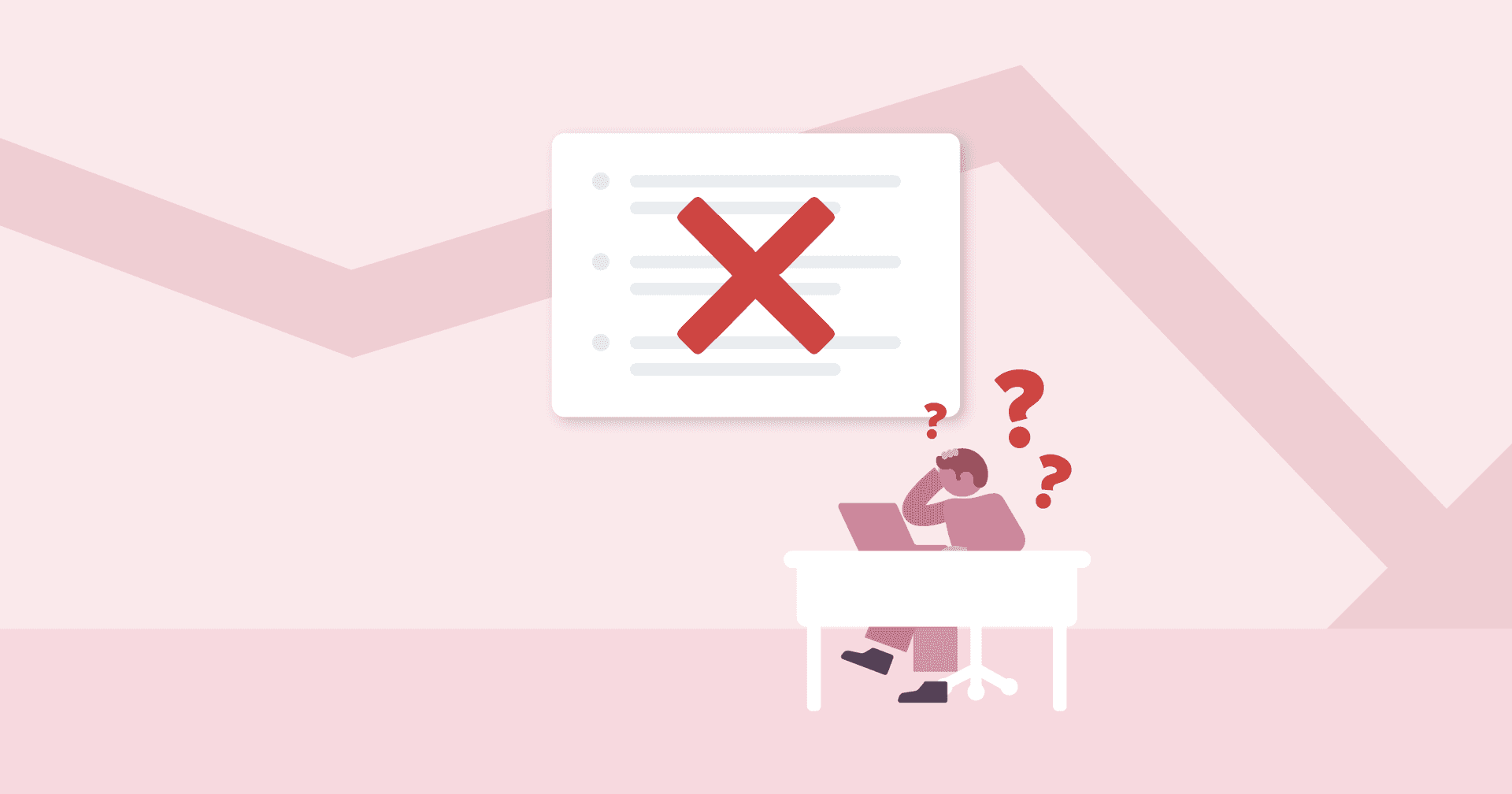Table of Contents
QUICK SUMMARY:
Stress management is key for marketing agency leaders to maintain both professional success and personal well-being. This guide, authored by a licensed mental health professional and agency owner, offers practical techniques to manage stress, ensuring balanced leadership.
Navigating the multifaceted environment of a marketing agency is a high-wire act that few can master. As an agency owner, you're the ringmaster of creativity, tasked with inspiring those around you to produce compelling graphics and copy that capture the imagination.
Yet, this inherently creative endeavor is only one small piece of what you do. If we’re honest, it’s a constantly shrinking part of what you do, as the longer you’re in this leadership role the less time it feels like you have for creativity.
There’s also the pressure to crunch numbers, dive deep into analytics, and harness a sharp business sense. All of this adds layers of complexity to an already challenging role. You're constantly toggling between the creative and analytical parts of your brain, striving to keep the lights on while fostering an environment where your team can thrive.
The responsibility doesn't end there. People management requires a delicate balance of offering praise and constructive feedback, ensuring employee satisfaction, and navigating the intricacies of hiring and retention. And when the agency’s most difficult clients are unhappy or when there are significant concerns about a client’s account? It's often you who steps in to help smooth things over. At best, it’s you who is there talking things over with staff, strategizing and silently supporting on the sidelines.
In other words, you’re shouldering the weight of the most challenging conversations and decisions throughout your agency. If we do not manage our stress effectively as agency leaders, we risk our relationships falling apart, making mistakes at work due to burnout, creating a culture in our agency that leads to high turnover and poor work performance, or any number of other concerns. In short, stress management is a vital, though challenging, skill for agency leaders to learn.
As a licensed mental health professional and the owner of an SEO agency that caters specifically to mental health private practice owners, I've navigated these dual worlds firsthand. That said, I’ll be honest that I’m a recovering workaholic to whom stress management does not come naturally.
My unique perspective has shown me the critical importance of effective stress management—not just for the sake of business success but for maintaining the quality of our lives outside of work.
Today, we'll explore practical stress management techniques that acknowledge and bridge the gap between our professional responsibilities and personal well-being, ensuring that agency owners excel in their multifaceted roles without sacrificing what brings them joy.
First, A Hard Truth: You’re Human
As a leader in the marketing world, you’ve likely gotten to your current level of success by being hard-working and high-achieving. Realistically, you’re probably able to accomplish much more than the average person. Is some of it luck? Sure. But you also work hard, and you have some excellent skills. At the end of the day, you likely expect a LOT of yourself. You keep going even when others have long since thrown in the towel.
Yet, amidst this whirlwind of professional obligations, it's crucial to remember that agency leaders are, first and foremost, human. Many high-performers are excessively hard on ourselves when the going gets tough, often believing that this self-critical nature is part of what spurs our momentum. But it’s important to remember that even top performers make mistakes, need rest and recognition, and are allowed to take time to do the things that enrich their life beyond pushing the agency forward.
Recognizing Personal Stress Signals
In my practice as a licensed mental health professional, I often worked with high achieving professionals who were under a lot of pressure. We spoke a great deal about stress management.
One thing I have often worked on with clients is recognizing their own personal stress signals–understanding and recognizing one's own early warning signs of stress is crucial for effective management.
The key lies in recognizing what your stress looks like in different stages:
What does it look like when you’re a little stressed?
What happens if you keep going after that without addressing the early stress levels?
What about when your stress is completely out of control?
For me, an initial indicator of stress is taking an unusually long time to compose emails, a task that typically requires efficiency and clarity of thought. This seemingly small signal is a red flag that stress is beginning to impair my cognitive functions.
If left unaddressed, my stress symptoms escalate to more severe physical manifestations, such as skipping meals due to a lack of appetite caused by stress, rather than a conscious decision to forego eating.
Eventually, if I continue to ignore these signs, my body forces a shutdown through debilitating migraines, rendering me unable to work or participate in personal activities for days. This progression from subtle mental fog to severe physical incapacitation underscores the necessity of early intervention. Over time, I've learned that recognizing and addressing these early signs of stress is far less disruptive than dealing with the consequences of ignoring them.
Most individuals will find that their bodies offer similar warnings, whether through physical symptoms like headaches or emotional signs such as irritability. The key is to identify these personal stress signals before they escalate to more serious health issues or impact professional responsibilities and personal relationships.
Agency Tip: Agency leaders, by becoming familiar with their unique stress indicators, can take proactive steps to manage stress effectively. This not only prevents the negative health outcomes associated with chronic stress but also maintains the high level of performance and leadership required to run a successful agency.
When I’ve asked high achieving clients before what they do to manage stress, they’ve often given me stereotypical answers, “I eat healthy. I try to sleep at least # of hours a night.” OR they tell me a single thing they do. As if that one thing fixes everything. For example, “I get a massage once a month.”
The truth is, we all need a full tool box of stress management tools. Different types of stress require different tools. And to make it more challenging? The tools that work best for one person might not work best for another person.
Impress clients and save hours with custom, automated reporting.
Join 7,000+ agencies that create reports in minutes instead of hours using AgencyAnalytics. Get started for free. No credit card required.
Building Your Toolbox of Stress Management Techniques
When I’m helping a new client build their “toolbox”, I warn them it’s going to take some trial and error. You have to try some different things to figure out what truly helps reduce YOUR stress level–not your spouse’s, not your friend’s, not your employee’s. Your stress level.
Also, this customization of tools isn't static; it evolves. Over time, you might find that a technique which once worked wonders has lost its efficacy. It's a journey of discovery, where some tools may be used daily for minor adjustments, while others are reserved for those moments when everything seems to be collapsing, and a more drastic intervention is required.
With this in mind, let's explore some specific stress management techniques, categorized by the intensity of the stress they're best suited to address. From quick, everyday fixes to comprehensive strategies for tackling deep-seated stress, my goal here is to give you some things to try, and encourage you to find what works best for you.
Agency Leader Quick Fixes for Immediate Stress Relief (Hammers)
Just like a hammer, these tools are meant to be stress management techniques you’ll use on a really regular basis. You may have more of these in your toolbox and use them pretty frequently.
Hammer | Explanation |
|---|---|
Go for a Mindful Walk | Stepping outside for a walk, especially if done mindfully by fully immersing in the surroundings and engaging all your senses, offers an immediate reduction in stress levels. |
Practice the 5-4-3-2-1 Grounding Technique | This quick grounding exercise, where you identify five things you can see, four you can touch, three you can hear, two you can smell, and one you can taste, swiftly brings your focus back to the present, reducing stress. |
Breathing Techniques | Whether it’s deep belly breathing, the 4-7-8 technique, or any other method, focused breathing calms the nervous system and reduces stress. |
Regular Exercise | Incorporating exercise into your daily routine not only boosts serotonin levels but also helps in maintaining a balanced mood and energy level. |
Eat Healthy | A well-balanced diet supports your body in managing stress better. Certain foods have a calming effect, while a nutritious diet supports overall well-being. |
Invest in Relationships | Spending quality time with family and friends is crucial. These connections offer support, laughter, and a break from the pressures of work. |
Engage in Hobbies | Making time for activities you love is not just a luxury; it’s essential for mental health, providing a necessary break and rejuvenation. |
Learn Something New | The novelty of learning is incredibly refreshing, offering a sense of achievement and a break from routine stressors. |
Agency Leader Strategies for Intermediate Stress Levels (Sledgehammers)
These are the things you’ll do when you start to notice some of those earlier signs that you’re pretty stressed. It’s good to know a couple of these things that you can do when needed.
Sledgehammer | Explanation |
|---|---|
Reorganize Your Schedule | Time often feels like your scarcest resource. Taking the time to reassess and reorganize your schedule alleviates stress by ensuring your workload is manageable and aligned with your priorities. You may find: Things that are taking up more time than they really should. Things you can now delegate. Things that don’t have any dedicated time right now but you spend a LOT of time doing. Alleviate some stress just by officially assigning time to complete these activities each week. |
Progressive Muscle Relaxation | Stress doesn't just reside in the mind; it manifests physically in the tension held within our bodies. Progressive Muscle Relaxation (PMR) is a technique that addresses this physical aspect of stress by systematically tensing and then relaxing different muscle groups.
This process not only promotes physical relaxation but also provides mental relief by focusing your attention away from stressors and onto your body. It’s a method I personally advocate for, especially for those evenings when stress seems to bar the path to restful sleep. |
Practice Meditation | The practice of meditation has long been heralded for its stress-reducing benefits, and for good reason. Engaging in regular meditation can transform your relationship with stress, teaching you to observe thoughts and emotions without judgment and to bring your attention back to the present moment.
There are various forms of meditation to explore, from mindfulness meditation, which focuses on breath and bodily sensations, to guided meditations that help direct your focus away from stress-inducing thoughts. |
Set Boundaries on Work Hours | As an agency leader, it’s easy to let work consume your day, often bleeding into your personal time. Actively setting and enforcing boundaries around your work hours can significantly reduce stress.
This might mean turning off work emails after a certain time, or designating "no work" days where you fully disconnect and recharge. |
Strategically Delegate | One of the key skills in reducing stress is knowing when and what to delegate. Take stock of tasks that can be handled by others, especially those that are routine or less critical but time-consuming.
This not only lightens your workload but also empowers your team by entrusting them with more responsibilities. Strategic delegation frees up your mental space, allowing you to focus on tasks that require your unique expertise and leadership. |
Seek Professional Support | Sometimes, stress stems from deeper issues related to business strategy, leadership challenges, or personal hurdles. In such cases, consulting with a coach or a mentor who specializes in business leadership can provide valuable insights and strategies to manage stress. This professional support offers a fresh perspective, helping you to navigate complex problems more effectively and with less stress. |
Agency Leader Major Interventions for High-Level Stress (Bulldozers)
These are the things to do when you realize your stress has reached the point or is near the point of exhaustion, physical or mental health concerns, or burnout. Some people will reach this point and still try to just use some of those techniques above, but they’re no longer enough. It’s time to use “bigger” stress management tools. Here are a few:
Bulldozer | Explanation |
|---|---|
Taking Vacations | Short breaks where you are completely disconnected from work provide a deep level of stress relief and rejuvenation. If you’re taking a few days off, find a way to completely disconnect from work.
I know it’s hard. I used to say it was impossible. But it’s worth the effort. Longer stretches away from the office allow for substantial mental and physical recovery from prolonged periods of high stress–even if you’re still partially working. |
Hire Help | Hiring someone to take over certain aspects of your job that are particularly stressful or time-consuming can significantly reduce stress levels. Can you hire a personal assistant? Promote a current employee? Add another layer of management to your team?
A similar but different option is to outsource something in your organization. Perhaps it’s bookkeeping, payroll, IT, or another aspect of the business that is giving you headaches. I’ve even known business owners who outsource things in their personal life such as laundry. Whatever takes stress off your plate! |
Major Lifestyle Changes | Sometimes, addressing chronic, high-level stress requires significant changes, such as altering job roles, reducing work hours, or even career shifts to ensure long-term well-being. |
Agency Tip: If you’re not willing to completely cut communication with the office during your time off, clarify with your employees what issues are worth interrupting your vacation to address, versus what you expect them to handle on their own. This empowers them to feel confident in making decisions on their own without worrying about if this is something they should be calling you about–and you feel good knowing they’ll let you know about any emergency issues.
Encouraging a Culture of Agency Wellness
In the demanding world of agency leadership, the onus falls upon us not just to advocate for wellness but to embody the principles of stress management and work-life balance.
My journey as both a mental health professional and an agency owner has taught me that the ethos of self-care and wellness we promote is only as credible as our practice of it. While I've always championed self-care among my employees, emphasizing the importance of work-life balance for optimal performance, I realized that my actions often contradicted my words.
For years, routine audits of my time revealed a staggering 60+ work hours a week, frequently extending into the wee hours, compromising my sleep and personal time. Whenever an employee faced challenges, I was quick to take on their tasks, perpetuating a cycle of stress and overwork.
I believed this was my way of supporting my employees, of being a good leader. However, I clearly remember a conversation with my employee where they explained the stress it put on THEM to see how stressed I was. They pointed out that despite my verbal encouragement of self-care, my actions—emailing at all hours, working while sick, and rarely disconnecting—sent a conflicting message. My behavior not only fostered a stressful atmosphere but also set an unrealistic standard of overcommitment and self-neglect.
This realization was a turning point. It underscored that fostering a genuine culture of wellness starts with leaders modeling the very behaviors we want to see in our teams. Over the past two years, I've committed to not just managing my stress but visibly practicing self-care.
I clearly communicate my "off work" times, openly take sick days, and ensure that if I must work late, I schedule emails for the next day to avoid setting expectations for round-the-clock availability. I proudly share with my team when I'm prioritizing family time, reinforcing the message that setting boundaries is not just permitted but encouraged. These changes have made a tangible difference.
The true measure of success came this summer when I noticed that every employee had taken their vacation time—a testament to the culture of wellness we've cultivated. This shift didn't just happen overnight. It required a conscious effort to align my actions with my advocacy for wellness, demonstrating that managing stress is not only crucial for our well-being but also enhances our work performance.
Agency Tip: As agency owners, it’s imperative to openly model stress management practices to our teams, demonstrating that prioritizing wellness is not only accepted but expected. By sharing how you navigate your own stress, you create a safe space for employees to explore and adopt their stress management strategies. When leaders are transparent about their methods of managing stress, it not only humanizes them but also signals to the team that their health is a priority, paving the way for a more supportive, resilient, and productive work environment.
Fostering Resilience in Agency Leadership
In navigating the complexities of agency leadership, we've explored the necessity of assembling a diverse toolbox for managing stress, from the daily-use "hammers" to the "bulldozers" reserved for more challenging periods.
This journey through understanding stress, identifying personal stress signals, and adopting various management techniques underscores a broader theme: the integral role of wellness in sustaining both our personal well-being and professional efficacy.
As agency leaders, our commitment to practicing what we preach—by openly modeling stress management strategies—cultivates a culture of wellness that empowers each team member to prioritize their health and find their unique path to stress resilience.
As we continue to navigate the demands of the marketing industry, remember that the strategies for managing stress are as varied as the challenges we face. Whether it's through mindful walks, strategic delegation, or setting boundaries, the goal remains the same: to lead with resilience, compassion, and a deep-seated commitment to wellness.
Streamline your client reporting and reduce the stress of manual work. Create stunning reports in 11-seconds flat with AgencyAnalytics Smart Reports–try it free for 14 days.

Written by
Jessica Tappana is a clinical therapist and owner of Simplified SEO, a successful SEO marketing agency operating out of Missouri.
Read more posts by Jessica TappanaSee how 7,000+ marketing agencies help clients win
Free 14-day trial. No credit card required.






